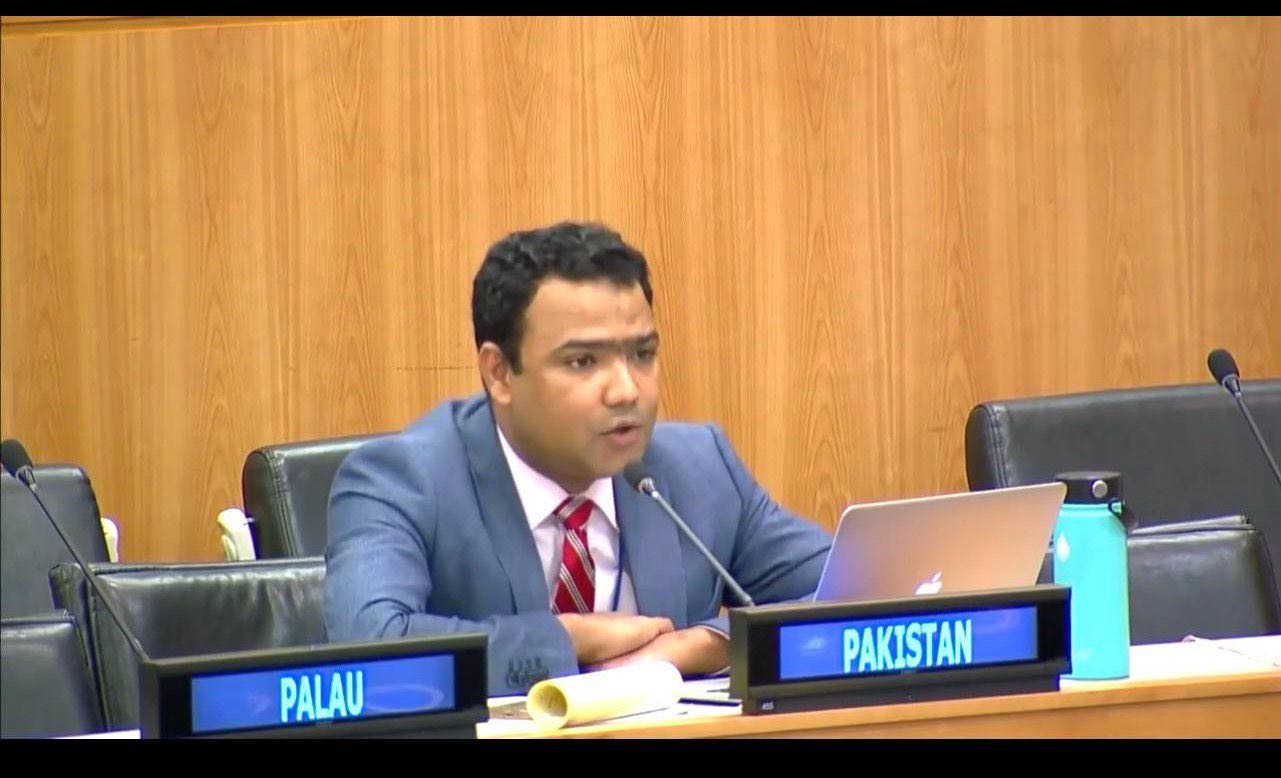 April 02, 2024, New York: Pakistan has stated that grave human rights situation in IIOK, massive arms build-up by India, its aggressive war posturing & war-fighting doctrines directly impact regional & global peace in South Asia & thus are completely relevant to the work of the UN Disarmament Commission. Gul Qaiser Sarwani, Counsellor at the Permament Mission of Pakistan to the UN, stated this in his right of reply to India’s comments. He asserted Jammu and Kashmir is an internationally recognized disputed territory and is not, by any means, a so-called “integral part of India.
April 02, 2024, New York: Pakistan has stated that grave human rights situation in IIOK, massive arms build-up by India, its aggressive war posturing & war-fighting doctrines directly impact regional & global peace in South Asia & thus are completely relevant to the work of the UN Disarmament Commission. Gul Qaiser Sarwani, Counsellor at the Permament Mission of Pakistan to the UN, stated this in his right of reply to India’s comments. He asserted Jammu and Kashmir is an internationally recognized disputed territory and is not, by any means, a so-called “integral part of India.
Pakistan has stated that grave human rights situation in Jammu & Kashmir, massive arms build-up by India, its aggressive war posturing & war-fighting doctrines directly impact regional & global peace in South Asia & thus are completely relevant to the work of the UN Disarmament Commission.
Gul Qaiser Sarwani, Counsellor at the Permanent Mission of Pakistan to the UN, stated this in his right of reply (RoR) to comments by India’s delegation during the general debate of the UN Disarmament Commission. He categorically asserted that Jammu and Kashmir is an internationally recognized disputed territory and is not, by any means, a so-called “integral part of India.”
The Pakistani diplomat said that his country faces a significant threat of terrorism, which is orchestrated, supported and financed by its eastern neighbor, a well-known state sponsor of terrorism whose terrorist network has gone global, reaching countries far beyond its borders.
Mr. Sarwani reiterated Pakistan’s stance on the longstanding Jammu and Kashmir dispute, emphasizing that it remains on the agenda of the UN Security Council for over 75 years. He underscored that the final disposition of Jammu and Kashmir should be determined by its people through a United Nations-supervised plebiscite, as mandated by Security Council resolutions, to which India is bound to comply under Article 25 of the UN Charter.
On the draft programme of work of the Conference on Disarmament (CD), Mr. Sarwani expressed Pakistan’s concerns over India’s emphasis on the Fissile Material Cut-off Treaty (FMCT), which disproportionately affects Pakistan’s national security interests. He urged for flexibility and compromise from all delegations to break the longstanding deadlock in the CD.
“Failure to achieve consensus in the CD also reflects on the lack of sincere and inclusive efforts by the President to bring all member states on board,” he said.
Concluding his statement, the Pakistani representative called upon the international community to address attempts to undermine regional peace and security, emphasizing their direct impact on prospects for disarmament at both regional and global levels.
Sub Editor: Ghufran